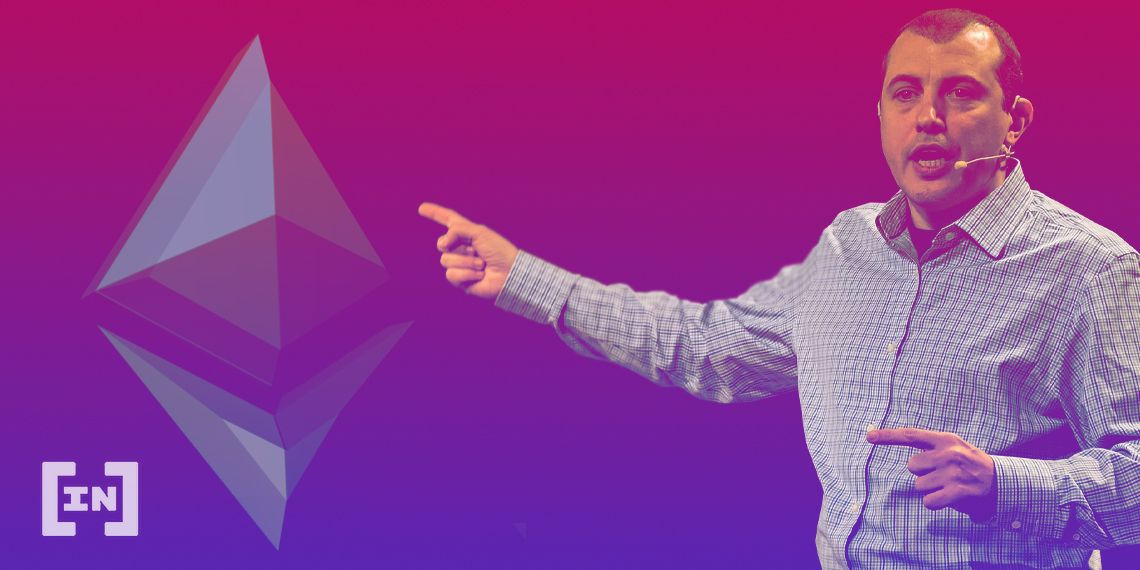Aside from DeFi, the debate surrounding Ethereum’s supply has been the trending topic on crypto Twitter over the last week.
The debate hinges on two questions: what is the current circulating supply of ETH? And can its total be independently verified? This issue has been discussed before but was reignited by a tweet from Bitcoin influencer and Morgan Creek Capital founder Anthony Pompliano.
The tweet concluded that,
“the Ethereum community can’t figure out what the total outstanding supply of the asset is.”Many Ethereans were quick to disagree. Well-known blockchain educator Andreas Antonopoulos also weighed in on the controversy by calling it a “silly gotcha” in a Twitter thread posted on August 10.
On August 14, he appeared on the Unchained Podcast with Laura Shin. There, he doubled down on his position,Again, it takes 10x the time to debunk bullshit as it does to state
— Andreas (aantonop Team) (@aantonop) August 10, 2020
There are plenty of valid things to criticize, both for Bitcoin and Ethereum. Those who understand these technologies work to address the issues by *building* engineering solutions for engineering problems
/19
“the question[s] reflects some deep framing assumptions and an inability to see past those assumptions. This is the kind of thing so often leveled at Bitcoin by people who don’t understand what it is or why it matters.”Per Antonopoulos, the debate is not honest,
“to see it [this kind of argument] being used by people interested in Bitcoin against Ethereum, seemed to me to be not necessarily a good-faith question or one that is interesting.”
Challenges Unique to Ethereum
Crypto tribalism is nothing new, but it can often obscure the more substantive parts of the conversation. Like a deeper understanding of what it is about the Ethereum blockchain that makes supply calculations less straightforward. This issue was also discussed in the Unchained episode, and the crux of the challenge, according to Antonopoulos, is,“in Bitcoin, there is a specific API method where you can ask your node to give you the total sum. In Ethereum, it isn’t so easy to do that. That doesn’t mean there isn’t an answer, or the answer isn’t validated. It just means it’s less accessible, and depending on how you write the script to find the answer, you might get different answers.”There are a variety of factors specific to Ethereum that make calculating its supply trickier than Bitcoin. For example, it uses an account balance system, burn addresses, has different block times, and there are also “uncle rewards” to take into account. As Antonopoulos describes it,
“uncle rewards are part of the consensus system, unlike Bitcoin where the winner takes all, in Ethereum the spoils are shared by the winner and 2nd, 3rd, 4th, place, etc.”Uncles are issued with a delay of up to six blocks and can form up to 87% of the block reward, making them crucial to account for but tough to calculate.
A Call for Less Maximalism
Many appeared to be gloating about the difficulty it takes to pin down a single total for the Ether supply. According to Antonopoulos, this attitude is“unproductive, because focusing too much on what one chain should be doing instead of building your own solutions is a waste of time”and,
“dangerous, because no system is above criticism or with flaws, and if you take a position of absolute purity and a problem is discovered, there is no retreat from that.”
Top crypto platforms in the US
Disclaimer
In adherence to the Trust Project guidelines, BeInCrypto is committed to unbiased, transparent reporting. This news article aims to provide accurate, timely information. However, readers are advised to verify facts independently and consult with a professional before making any decisions based on this content. Please note that our Terms and Conditions, Privacy Policy, and Disclaimers have been updated.
Colin Adams
Colin is a writer, researcher, and content marketer with a keen interest in the future of money. His writing has been featured in numerous cryptocurrency publications, and his holdings don't amount to more than a handful of BAT.
Colin is a writer, researcher, and content marketer with a keen interest in the future of money. His writing has been featured in numerous cryptocurrency publications, and his holdings don't amount to more than a handful of BAT.
READ FULL BIO
Sponsored
Sponsored

